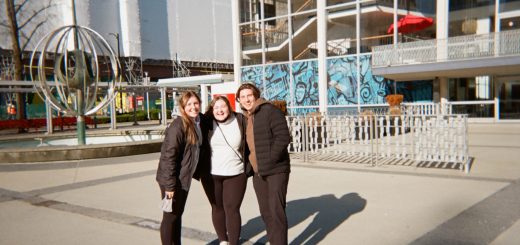Learning Across Fields (#2): Success

Photograph credits: Zan @zanilic
Hello again,
This is the second entry in my blog series, Learning Across Fields. If you’re familiar with the layout from the original blog post, feel free to skip this next paragraph. I hope you all enjoy this week’s theme on Success.
“My goal for this entire blog series is to help newer students gain perspective. I decided that the best way to do so was to ask my close friends about their university experience. All of my friends that I’ve gathered here are from a diverse array of fields, most of whom are graduating UVic within a year (me included). My hope now is to give people a chance to engage in a reflective dialogue with themselves and maybe with others in our community. In this sense, I encourage whoever is reading this, to ponder these questions as if they were being addressed to you. After all, novel ideas only take fruition from a transdisciplinary network of people. That is why I named this mini blog series, ‘Learning Across Fields’ or LAF for short.”
Theme #2: Success
Question #2: What habit has helped you the most with academic excellency?
Aidan – On Top of Studies
Computer Sciences
By far the habit that has helped me the most with academia is to get ahead and to stay ahead of course work by being consistent with your time dedicated to school.
I used to be the ‘leave it till the last day’ type, and I cannot express how much healthier and happier I feel by tackling assignments as soon as they’re assigned.
I find it so much easier to understand new topics if I’ve done the readings BEFORE learning about it in class (it also gives you an opportunity to ask questions if you’re still confused!).
Francis – Task Management
Political Science
Splitting up my study sessions and workdays has significantly boosted my productivity. I’ve found that setting goals for each hour and taking multiple small breaks to be crucial in maintaining focus during long study periods.
Jake – Application and Fun
Earth and Ocean Sciences
Engaged and applied learning has been critical to my success.
Applied learning for me comes in the form of projects, reports, or other work where I get to choose how I prove what I learned in school.
Field school is a good example of this idea. During field schools – at least within EOS – they allow you to choose how to shape your experience. Supervision is minimal, and often times you are alone in the wilderness, where your academic experience is demanded to actually produce results.
Ultimately, having fun with school has made it a better learning experience for me. If this means hitting Fels after (or even before…) the lab, so be it.
Dan – Location
Biopsychology/Writing
Hands down the habit that has helped me the most is dedicating a specific place to get work done.
For me, I had a spot in the third floor of the library that I would go to when I needed to study. When I was in this spot I would only do work and nothing else. If I felt my focus leaving me or the desire to procrastinate, I would leave the space so I wouldn’t tarnish its purpose.
This practice has been super helpful for me because it creates physical boundaries for where I relax/study and where I must be productive. I found that establishing a physical space (which is in my control) can override my mental space (not in my control) so that when I arrive in that spot on the third floor, my brain will say “okay bro, it’s time to gear up and really focus now.”
I think when properly done, you can be way more productive in an established space, which can give you more time to relax.
Jose – Experimentation
Financial Mathematics
Since my habits are a little unorthodox and I would not recommend them to other students…
The only thing I would advise to new students or students that are trying to find an answer to this question is to find a way to work efficiently. Experiment with tactics or schedules that you think would be optimal for yourself.
Colin – Community
Biomedical Engineering
Engaging in the faculty community outside of direct instruction. Engaging with professors, grad students, and clubs in the faculty has given me a sense of community at UVic that motivates me to do well.
Ethan – Foundation
Microbiology
Before tackling any lecture material, I find that it’s critical to thoroughly learn the building blocks of any given concept. It seems like trivial advice, but as the years progress, I’ve noticed that a strong foundation (especially within upper-year sciences) can make the difference in how well I can comprehend demanding and complex material.
Like everything else in life, it takes a lot of time and effort. However, once you construct this idea of “learning through foundation”, you will be able to think more independently as a student, while also understanding concepts through your own mental frameworks.



